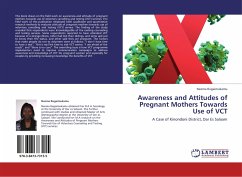
Attitudes towards Deviance and Deviant Behavior
The Influence of Science, Individualism, Social Bonds and Deviant Peers
Versandkostenfrei!
Versandfertig in 6-10 Tagen
39,99 €
inkl. MwSt.

PAYBACK Punkte
20 °P sammeln!
Various sociological theories of deviance have demonstrated the importance of an individual s attitudes toward deviance in determining whether or not that individual will engage in deviant behavior. Using a sample of 202 students from a large research university, this work contributes to the theoretical and empirical literature on deviant behavior by examining the strength of two cultural factors, the scientific worldview and individualism, in predicting an individual s attitudes toward deviance when tested alongside the tenets of other predominate individual level theories of deviance, namely...
Various sociological theories of deviance have demonstrated the importance of an individual s attitudes toward deviance in determining whether or not that individual will engage in deviant behavior. Using a sample of 202 students from a large research university, this work contributes to the theoretical and empirical literature on deviant behavior by examining the strength of two cultural factors, the scientific worldview and individualism, in predicting an individual s attitudes toward deviance when tested alongside the tenets of other predominate individual level theories of deviance, namely Hirschi s social control theory and Sutherland s differential association theory. The findings lend support to differential association theory and the scientific worldview as significant predictors of tolerant attitudes towards deviance.












